Chilquiles Chronicles: A Global Spice Lover’s Guide to Mexico’s Most Underrated Dish
Table of Contents
- Introduction to Chilquiles
- Origins and Cultural Roots
- Global Variations of Chilquiles
- The Spice Profile of Chilquiles
- How to Make Classic Chilquiles at Home
- Buying Guide for the Best Chilquiles Ingredients
- Spice Pairings and Beverage Suggestions
- Health Considerations and Nutritional Benefits
- Conclusion: Celebrating Chilquiles Across Borders
The Humble Hero of Mexican Breakfast Tables: Chilquiles
If you’ve ever had the pleasure of dining in a Mexican household during breakfast hours, chances are you’ve encountered chilquiles. These crispy tortilla chips bathed in spicy sauce and often topped with crema, cheese, or eggs might seem simple on the surface, but beneath their humble appearance lies a world of flavor, tradition, and spice culture that stretches far beyond the borders of Mexico.
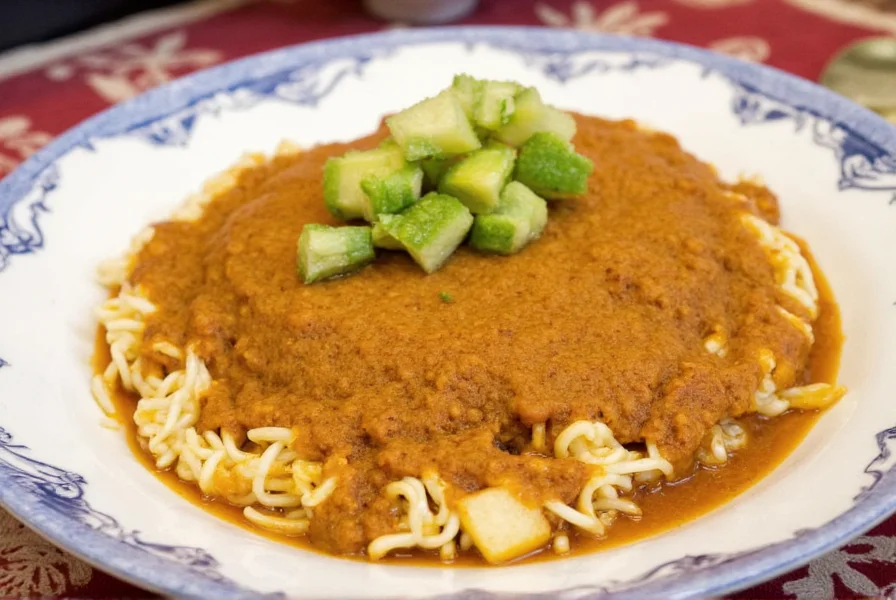
In this article, we’ll dive deep into the spicy heart of chilquiles — from its origins to modern twists, global adaptations, and even a detailed buying guide for the best ingredients to recreate them at home. Whether you're a seasoned chef or just a curious foodie with a love for spice, there's something here for everyone.
Roots in History: The Birth of Chilquiles
Chilquiles have been around for centuries, with roots tracing back to pre-Hispanic times. Originally, they were made from leftover tortillas that were fried and then simmered in sauces made from tomatoes, chili peppers, or even mole. The word “chilquiles” is derived from the Nahuatl language spoken by the Aztecs — specifically, the word *chīlquilitl*, which translates roughly to “chili-soaked thing.”

This dish was not only a way to use up stale tortillas but also a delicious method of combining the bold flavors of chili and corn — two pillars of Mesoamerican cuisine. Over time, regional variations emerged across Mexico, each adding local flair through unique salsas, toppings, and proteins.
Going Global: How Chilquiles Travel the World
As Mexican cuisine has grown in popularity worldwide, so too has the humble chilquile. Today, chefs and home cooks alike have put their own spin on this classic, incorporating international ingredients and adapting it to suit different palates. Here’s how chilquiles have evolved globally:
| Region | Variation | Notable Changes |
|---|---|---|
| Mexico (Original) | Chilquiles Rojos/Verdes | Tomato or green salsa base; usually served with eggs, beans, avocado, crema |
| United States | Breakfast Bowl Chilquiles | Baked tortilla chips with scrambled eggs, bacon, and American cheese |
| Japan | Wasabi Chilquiles | Green chili sauce replaced with wasabi mayo and seaweed topping |
| Italy | Pasta Chilquiles | Chili-infused pasta served with fried tortilla strips on top |
| France | Sous Vide Chilquiles | Crispy confit potatoes used instead of tortillas; poached egg and hollandaise |

Whether it’s fusion-friendly or strictly traditional, one thing remains constant: the soul of chilquiles lies in the perfect balance of heat, texture, and depth of flavor.
Spice It Up! Understanding the Heat Behind Chilquiles
At the core of any good chilquiles dish is its sauce — and where there's sauce, there's spice. Depending on whether you go with red or green sauce, the types of chilies used can vary significantly in both flavor and heat level.
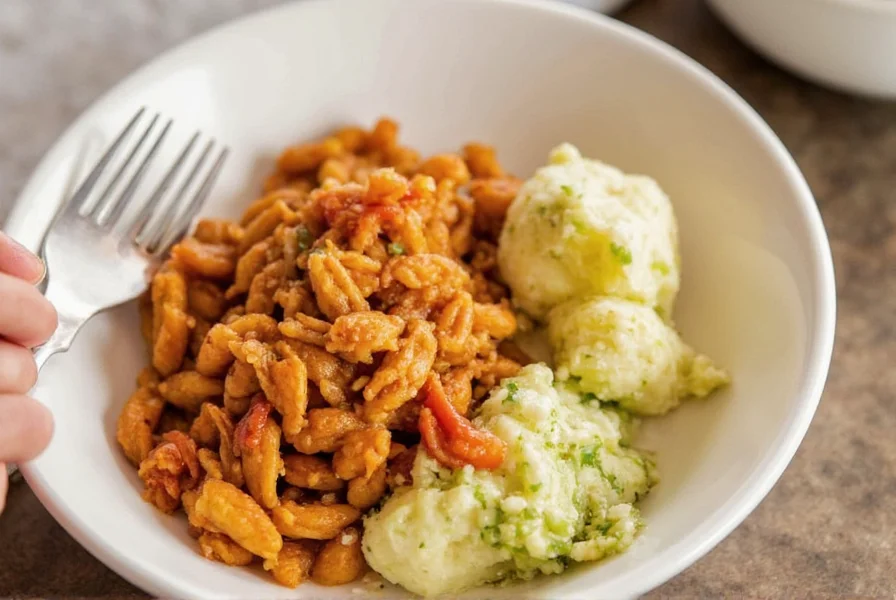
Common Chili Peppers Used in Chilquiles:
- Ancho: Sweet and fruity, with mild heat (1,000–2,000 SHU)
- Guajillo: Slightly smoky with medium heat (2,500–5,000 SHU)
- Jalapeño: Common in green sauce, bright with moderate heat (2,500–8,000 SHU)
- Serrano: More intense than jalapeños, often used raw or pickled (10,000–23,000 SHU)
- Habanero: Not traditional, but sometimes added for serious fire lovers (100,000–350,000 SHU)
When preparing your chilquiles at home, don’t be afraid to experiment with these peppers to customize the heat to your liking. Remove seeds for milder results, or add extra serranos if you want a real kick!
How to Make Classic Chilquiles at Home: A Step-by-Step Guide
Ready to bring the magic of chilquiles into your kitchen? Here’s a tried-and-true recipe for making authentic-style chilquiles verdes (green chilquiles):
Ingredients:
- Fried tortilla chips (or freshly fried corn tortilla slices)
- 1 cup chopped tomatillos
- 2–3 jalapeños
- 1 clove garlic
- 1/2 onion
- 1/2 cup fresh cilantro
- Salt to taste
- Optional: shredded chicken, crumbled queso fresco, sour cream, avocado slices
Steps:
- Roughly chop tomatillos and jalapeños, then roast in the oven or directly over a gas flame until slightly blackened.
- Add roasted veggies to a blender along with garlic, onion, cilantro, and salt. Blend until smooth.
- In a skillet, warm up your tortilla chips, then pour the green sauce over them and let simmer for about 5 minutes.
- Garnish with crema, cheese, avocado, and optional protein like shredded chicken or chorizo.
- Serve hot and enjoy!

Tip: If you prefer red chilquiles, simply substitute the tomatillos with ripe tomatoes and swap jalapeños for ancho or guajillo peppers.
Buying Guide: Choosing the Best Ingredients for Chilquiles
While some might consider chilquiles a quick throw-together meal, using quality ingredients will elevate the dish from “just okay” to absolutely unforgettable. Here’s what to look for when shopping:

Tortillas & Chips
- Type: Corn tortillas are traditional, but flour can be used for a softer bite.
- Fresh vs. Packaged: Fresh tortillas give a better texture when fried. Look for brands like Maseca or Xochimilco.
- Packaged Options: Choose unsalted, non-GMO tortilla chips for maximum flavor control.
Chili Sauces & Pastes
- Red Sauce: Brands like La Costeña, Tia Lupita, and El Yucateco offer great options ranging from mild to fiery.
- Green Sauce: Don Julio and La Huerqueña are popular choices for a tangy, herbal punch.
- DIY Option: Make your own paste with fresh chilies, onions, and spices for full customization.
Cheese & Toppings
- Cheese: Queso fresco or cotija gives that salty, crumbly finish. Brands like Ekomaya or El Mexicano are widely available.
- Creme Fraîche / Crema: Substitute sour cream or Mexican crema like Cremería Lácteos for that creamy contrast.
- Protein Add-ons: Rotisserie chicken, chorizo, or plant-based alternatives work well for heartier meals.
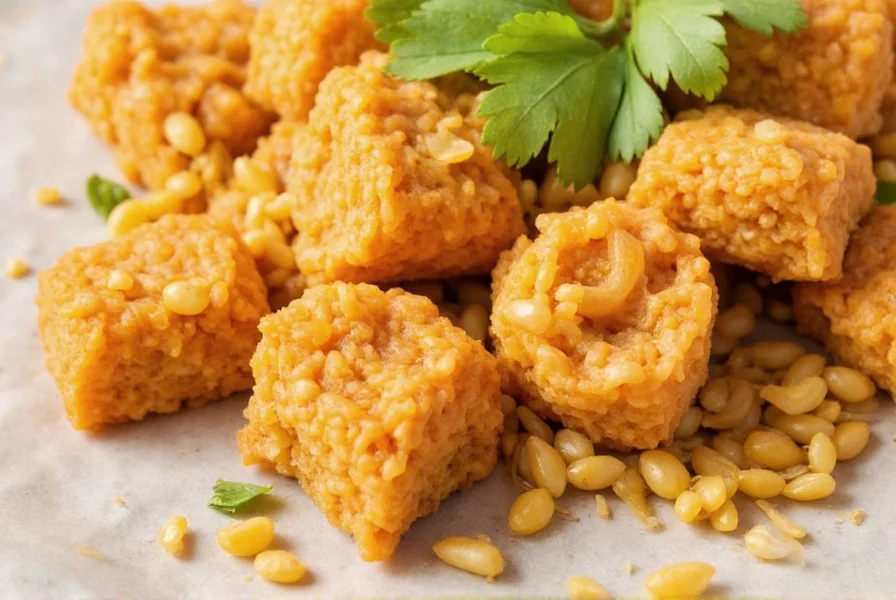
Remember: Quality ingredients = better flavor. Don’t skimp on the basics!
Pairing Perfection: What Goes Well with Chilquiles?
Chilquiles may be packed with flavor, but pairing them with the right beverage or side can truly enhance the experience. Here are our top recommendations:
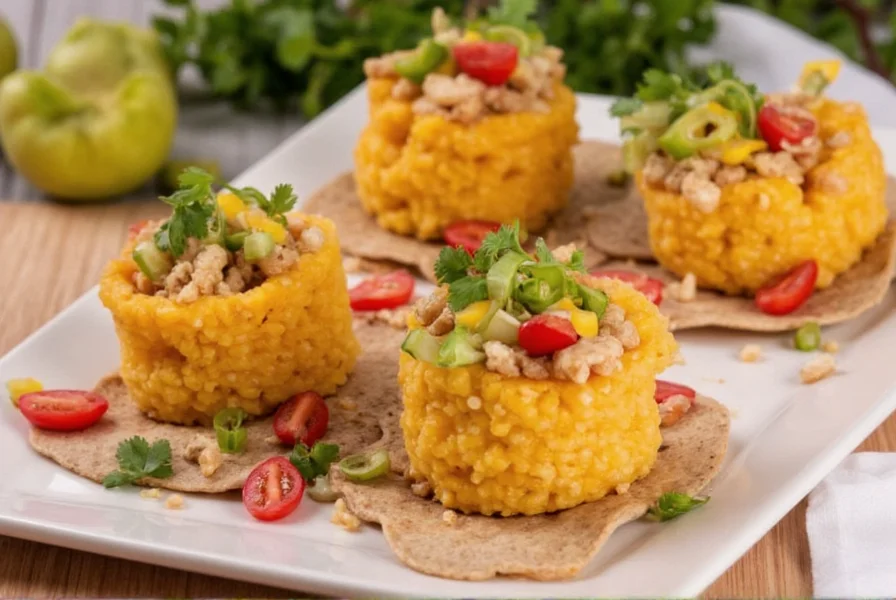
Best Beverages
- Horchata: A sweet rice milk drink that cools down the heat beautifully.
- Agua de Jamaica: Tart hibiscus tea that complements spicy chilquiles.
- Margarita: For brunch lovers, a classic margarita balances the richness perfectly.
- Cold Brew Coffee: Surprisingly refreshing alongside spicy, savory bites.
Side Dishes That Complement Chilquiles
- Refried Beans: Adds earthiness and a protein boost.
- Avocado Salad: Light and creamy to cut through the richness.
- Roasted Vegetables: Especially squash, bell peppers, and zucchini.
- Rice Pilaf: Soaks up extra sauce and adds texture.
Is Chilquiles Healthy? Nutrition Facts You Should Know
Though traditionally made with fried tortillas and rich toppings, chilquiles can absolutely be part of a balanced diet — especially with a few smart substitutions.
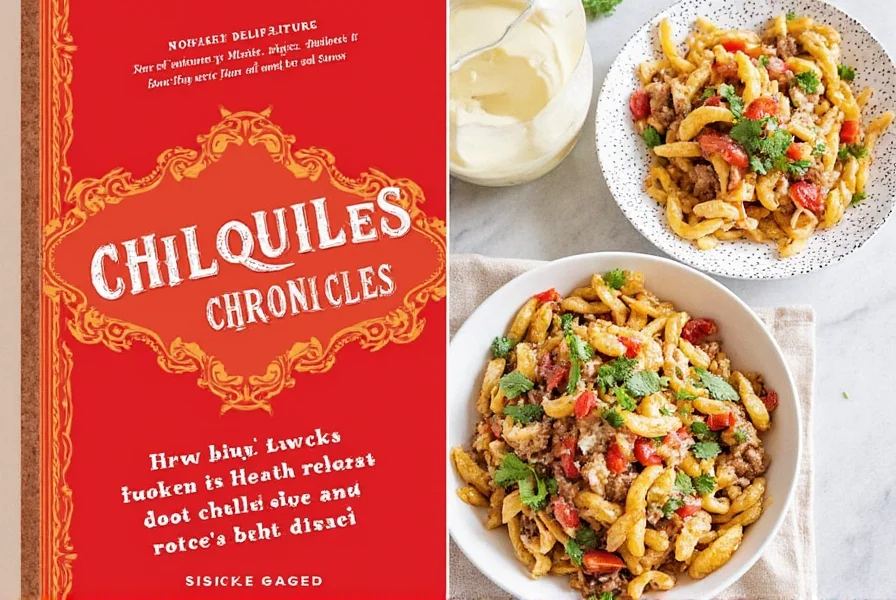
Nutritional Breakdown (per serving, approximate):
| Nutrient | Amount |
|---|---|
| Calories | 400–600 kcal |
| Protein | 15–25 g (depending on protein additions) |
| Fat | 15–25 g (mainly from oil and cheese) |
| Carbs | 40–60 g (from tortillas and toppings) |
| Fiber | 5–8 g (from vegetables and tortillas) |
| Sodium | 400–800 mg (adjustable based on seasoning) |
Smart Swaps for Healthier Chilquiles:
- Use baked tortilla chips instead of fried ones
- Swap crema for Greek yogurt or low-fat sour cream
- Add more vegetables like spinach, kale, or bell peppers
- Opt for lean protein like grilled chicken or tofu
- Make your own sauce to avoid preservatives and excess sodium
Final Thoughts: Why Chilquiles Deserve a Place in Every Spice Lover’s Kitchen
From ancient Aztec kitchens to trendy urban brunch spots, chilquiles have proven their staying power. They’re versatile, deeply rooted in tradition, and endlessly customizable — especially for those who live for spice. Whether you stick to the classic rojos/verdes combo or explore international twists, one truth holds strong: chilquiles are more than just a dish — they're a celebration of culture, community, and the joy of bold flavors.

So next time you’re looking for a weekend brunch idea or a hearty dinner that brings people together, remember the chilquiles — and don’t forget to crank up the heat just a little bit more.

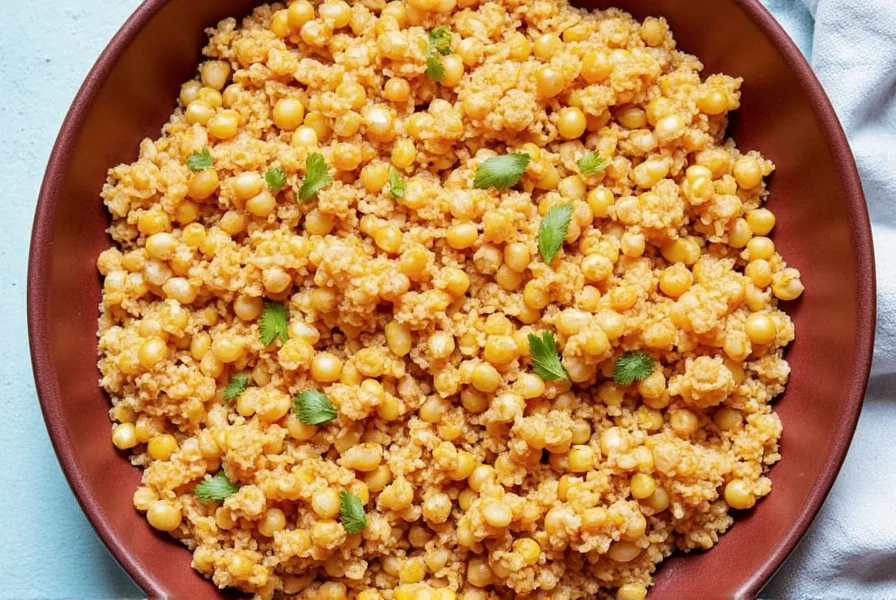









 浙公网安备
33010002000092号
浙公网安备
33010002000092号 浙B2-20120091-4
浙B2-20120091-4